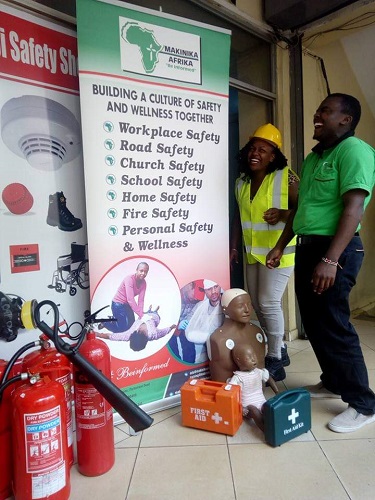Churches are the cornerstone of many communities, providing not only spiritual guidance but also a sense of fellowship and support. The operational efficiency of a church greatly impacts its ability to serve its congregation effectively. From ushering to media services, each department plays a critical role in ensuring that church activities run smoothly. This extensive guide delves into the various departments within church operations, detailing their benefits, formations, duties, roles, responsibilities, challenges, and current trends. Furthermore, for those seeking to enhance their church’s operational capabilities, the expert insights and training provided by Amb Steve Mbugua offer invaluable resources.
Chapter 1: The Importance of Church Operations
The Role of Church Operations
Church operations encompass a broad range of activities and services essential for the smooth functioning of church services and events. Effective church operations ensure that:
Congregants feel welcomed and valued.
Services run smoothly and without interruptions.
Safety and security are maintained.
The church’s facilities are well-maintained and organized.
Technological tools are effectively utilized to enhance worship experiences.
Benefits of Efficient Church Operations
Efficient church operations bring numerous benefits to both the church leadership and the congregation:
Enhanced Worship Experience: Seamless services allow congregants to focus on worship without distractions.
Increased Attendance and Engagement: A well-organized church attracts more visitors and encourages regular attendance.
Improved Safety and Security: Effective security measures ensure a safe environment for all attendees.
Better Resource Management: Efficient operations help in the optimal use of resources, reducing waste and costs.
Stronger Community Bonds: By providing a well-organized environment, the church fosters a sense of belonging and community.
Challenges in Church Operations
Despite the benefits, managing church operations comes with its own set of challenges:
Volunteer Management: Recruiting, training, and retaining dedicated volunteers can be difficult.
Balancing Tradition and Innovation: Integrating modern technology while preserving traditional worship practices.
Resource Constraints: Limited financial and human resources can hinder operational efficiency.
Communication: Ensuring clear and effective communication among various departments and volunteers.
Adapting to Changing Needs: The church must constantly evolve to meet the changing needs of its congregation.
Chapter 2: Detailed Overview of Key Departments in Church Operations
1. Ushering
Benefits of Ushering
Ushers are often the first point of contact for attendees, making them crucial for creating a welcoming atmosphere. They help manage seating, distribute materials, and assist congregants in various ways. The presence of well-trained ushers can significantly enhance the worship experience by providing:
Warm Welcome: Ushers greet attendees with a smile, making them feel valued.
Orderly Services: By managing seating and assisting with logistics, ushers ensure that services run smoothly.
Support for Attendees: Ushers assist with various needs, from finding seats to providing information about the church.
Formation of Ushering Teams
An effective ushering team typically comprises:
Friendly and Approachable Volunteers: Individuals who are naturally warm and welcoming.
Training Programs: Regular training sessions to equip ushers with the skills needed to handle diverse situations.
Clear Guidelines: A set of guidelines outlining the responsibilities and expected conduct of ushers.
Duties and Responsibilities of Ushers
The primary duties and responsibilities of ushers include:
Greeting Attendees: Offering a warm welcome to everyone who enters the church.
Assisting with Seating: Helping attendees find seats, especially during crowded services.
Distributing Materials: Handing out bulletins, hymnals, and other materials.
Managing Offerings: Assisting with the collection of tithes and offerings.
Providing Assistance: Helping with any special needs or requests from attendees.
Maintaining Order: Ensuring that the service proceeds without disruptions.
Challenges Faced by Ushers
Ushers often face several challenges, including:
Managing Large Crowds: Ensuring orderly seating and movement during well-attended services.
Accessibility: Assisting attendees with disabilities or special needs.
Handling Emergencies: Being prepared to respond to medical emergencies or other unexpected situations.
2. Protocol
Benefits of Protocol Services
The protocol team ensures that church events run smoothly and that guests, especially dignitaries, are treated with respect and professionalism. This enhances the overall image of the church and ensures that high-profile visitors have a positive experience.
Formation of Protocol Teams
Effective protocol teams are composed of:
Detail-Oriented Individuals: Those who can meticulously manage schedules and logistics.
Professional Training: Protocol officers often undergo specialized training in event management and hospitality.
Collaborative Efforts: A team that works closely with other departments to ensure seamless coordination.
Duties and Responsibilities of Protocol Teams
Key duties and responsibilities include:
Coordinating Schedules: Managing the schedules of visiting dignitaries and speakers.
Managing Guest Lists: Ensuring that all invited guests are properly accommodated.
Overseeing Logistics: Handling transportation, accommodations, and other logistical details for guests.
Ensuring Adherence to Protocols: Making sure that all protocols and etiquette are observed during events.
Challenges Faced by Protocol Teams
Protocol teams often encounter challenges such as:
Balancing Multiple Tasks: Handling various responsibilities simultaneously can be overwhelming.
Adhering to Strict Timelines: Ensuring that events proceed according to schedule.
Managing Expectations: Meeting the high expectations of guests and dignitaries.
3. Security
Benefits of Church Security
A robust security team is essential for providing a safe environment for worshippers. It protects congregants from potential threats and ensures peace of mind, allowing everyone to focus on worship.
Formation of Security Teams
Security teams typically consist of:
Professional Security Personnel: Trained security officers who may be hired for their expertise.
Trained Volunteers: Church members who undergo training to assist with security duties.
Clear Protocols: Established procedures and protocols for handling various security situations.
Duties and Responsibilities of Security Teams
The primary duties and responsibilities include:
Monitoring Entrances and Exits: Ensuring that only authorized individuals enter the church premises.
Conducting Patrols: Regularly patrolling the church grounds to detect and deter potential threats.
Managing Crowd Control: Ensuring orderly movement of people during services and events.
Responding to Emergencies: Being prepared to handle medical emergencies, fire incidents, or other crises.
Challenges Faced by Security Teams
Security teams face several challenges, such as:
Maintaining Vigilance: Staying alert and vigilant at all times.
Handling Conflicts: Dealing with conflicts or disturbances in a calm and effective manner.
Ensuring Comprehensive Coverage: Providing adequate security without being overly intrusive.
4. Hospitality
Benefits of Hospitality Services
The hospitality team plays a vital role in enhancing the overall experience for visitors and members. By making attendees feel valued and cared for, the hospitality team helps foster a sense of community and belonging.
Formation of Hospitality Teams
Effective hospitality teams consist of:
Warm and Personable Individuals: Those who excel in customer service and have a genuine desire to help others.
Training Programs: Regular training to ensure that hospitality team members can meet diverse needs.
Collaborative Approach: Working closely with other departments to provide comprehensive support.
Duties and Responsibilities of Hospitality Teams
Key duties and responsibilities include:
Welcoming Visitors: Greeting new visitors and providing them with information about the church.
Providing Information: Assisting attendees with questions or directions within the church premises.
Offering Refreshments: Providing beverages and snacks to make attendees feel more comfortable.
Managing Hospitality Desks: Setting up and managing information or welcome desks during services and events.
Challenges Faced by Hospitality Teams
The hospitality team often encounters challenges such as:
Meeting Diverse Needs: Catering to the varied needs and preferences of a diverse congregation.
Managing Resources: Ensuring that sufficient resources are available to meet hospitality needs.
Maintaining Consistency: Providing a consistently high level of service at all times.
5. Catering
Benefits of Church Catering
Catering services ensure that food and beverages are available for church events, fostering fellowship and community. A well-organized catering team can enhance the overall experience of church gatherings by providing delicious and nutritious meals.
Formation of Catering Teams
Catering teams are typically composed of:
Skilled Volunteers or Professionals: Individuals with experience in food preparation and service.
Collaborative Efforts: Working closely with other departments to coordinate catering needs.
Resource Management: Effective management of food supplies and catering equipment.
Duties and Responsibilities of Catering Teams
Key duties and responsibilities include:
Planning Menus: Designing menus that cater to the tastes and dietary needs of attendees.
Preparing and Serving Food: Cooking and serving meals during church events.
Maintaining Cleanliness: Ensuring that all food preparation and serving areas are kept clean and sanitary.
Managing Food Supplies: Keeping track of inventory and ordering supplies as needed.
Challenges Faced by Catering Teams
Catering teams often face challenges such as:
Catering for Large Numbers: Preparing and serving food for large groups of people.
Accommodating Dietary Restrictions: Ensuring that dietary needs and restrictions are met.
Preventing Food Waste: Managing food quantities to minimize waste.
6. Pastor Aide
Benefits of Pastor Aide Services
The pastor aide team provides essential support to the pastor, allowing them to focus on their ministry. By handling administrative tasks and offering personal support, the pastor aide team ensures that the pastor can effectively lead the congregation.
Formation of Pastor Aide Teams
Pastor aide teams typically consist of:
Trusted Individuals: Those who are discreet, reliable, and committed to supporting the pastor.
Training Programs: Training to ensure that team members understand their roles and responsibilities.
Collaborative Efforts: Working closely with the pastor and other church leaders to provide comprehensive support.
Duties and Responsibilities of Pastor Aide Teams
Key duties and responsibilities include:
Assisting with Administrative Tasks: Managing the pastor’s schedule, handling correspondence, and organizing meetings.
Providing Personal Support: Offering personal assistance to the pastor, such as arranging travel or managing personal errands.
Managing Church Activities: Helping with the planning and execution of church activities and events.
Ensuring Confidentiality: Maintaining confidentiality regarding sensitive information.
Challenges Faced by Pastor Aide Teams
Pastor aide teams often encounter challenges such as:
Balancing Confidentiality and Support: Maintaining confidentiality while providing effective support.
Managing Time Effectively: Handling multiple tasks and responsibilities efficiently.
Being Available as Needed: Being flexible and available to assist the pastor whenever needed.
7. Traffic Control
Benefits of Traffic Control Services
The traffic control team ensures orderly parking and safe movement of vehicles, reducing congestion and enhancing safety. By managing traffic effectively, this team helps create a positive experience for attendees.
Formation of Traffic Control Teams
Effective traffic control teams consist of:
Volunteers with Good Communication Skills: Individuals who can clearly direct traffic and communicate effectively with drivers.
Training Programs: Training to ensure that team members can handle various traffic-related situations.
Collaborative Approach: Working closely with other departments to coordinate traffic management efforts.
Duties and Responsibilities of Traffic Control Teams
Key duties and responsibilities include:
Managing Parking Lots: Directing vehicles to appropriate parking spaces and ensuring efficient use of parking areas.
Directing Traffic Flow: Ensuring smooth and safe movement of vehicles around the church premises.
Assisting with Vehicle-Related Issues: Helping attendees with vehicle-related issues, such as finding parking or dealing with breakdowns.
Ensuring Pedestrian Safety: Managing pedestrian traffic and ensuring the safety of people walking around the church grounds.
Challenges Faced by Traffic Control Teams
Traffic control teams often face challenges such as:
Dealing with Weather Conditions: Managing traffic in adverse weather conditions.
Managing Large Volumes of Vehicles: Handling large numbers of vehicles during well-attended services and events.
Ensuring Pedestrian Safety: Balancing the needs of vehicle traffic with the safety of pedestrians.
8. Media
Benefits of Church Media Services
The media team enhances the reach and impact of church services through audio-visual aids and online streaming. By leveraging technology, the media team helps the church connect with a wider audience and create more engaging worship experiences.
Formation of Media Teams
Effective media teams consist of:
Technologically Savvy Individuals: Those with skills in sound, lighting, and video production.
Training Programs: Regular training to keep team members updated on the latest technology and techniques.
Collaborative Efforts: Working closely with other departments to ensure seamless integration of media services.
Duties and Responsibilities of Media Teams
Key duties and responsibilities include:
Operating Audio-Visual Equipment: Managing sound, lighting, and video equipment during services and events.
Managing Live Streams: Broadcasting services and events online to reach a wider audience.
Producing Content: Creating videos, graphics, and other media content to enhance worship experiences.
Maintaining Equipment: Ensuring that all media equipment is in good working order.
Challenges Faced by Media Teams
Media teams often encounter challenges such as:
Keeping Up with Technology: Staying updated with the latest advancements in audio-visual technology.
Managing Technical Issues: Troubleshooting and resolving technical problems during services and events.
Ensuring High-Quality Production: Maintaining high standards of production quality for both in-person and online audiences.
9. Sanctuary Keeping
Benefits of Sanctuary Keeping Services
Sanctuary keeping involves maintaining a clean and orderly worship space, creating a conducive environment for worship. A well-maintained sanctuary enhances the overall experience for attendees and reflects the church’s commitment to excellence.
Formation of Sanctuary Keeping Teams
Sanctuary keeping teams typically consist of:
Dedicated Individuals: Those who take pride in maintaining the church’s facilities.
Training Programs: Training to ensure that team members understand the best practices for cleaning and organizing the sanctuary.
Collaborative Efforts: Working closely with other departments to coordinate cleaning and maintenance efforts.
Duties and Responsibilities of Sanctuary Keeping Teams
Key duties and responsibilities include:
Cleaning the Sanctuary: Regularly cleaning and sanitizing the worship space.
Organizing Seating: Ensuring that seating is arranged in an orderly manner.
Setting Up for Services: Preparing the sanctuary for services and events, including arranging flowers, setting up communion elements, and more.
Maintaining Supplies: Keeping track of cleaning supplies and ensuring that they are replenished as needed.
Challenges Faced by Sanctuary Keeping Teams
Sanctuary keeping teams often face challenges such as:
Handling Large Areas: Cleaning and maintaining large worship spaces can be time-consuming and labor-intensive.
Managing Cleaning Supplies: Ensuring that all necessary cleaning supplies are available and used effectively.
Ensuring Consistent Standards: Maintaining a consistently high level of cleanliness and organization.
Chapter 3: Current Trends in Church Operations
1. Technology Integration
Technology is playing an increasingly significant role in church operations. From live streaming services to using apps for event management, technology helps churches reach a wider audience and operate more efficiently.
Key Technological Trends
Live Streaming and Online Services: Broadcasting services online to reach those who cannot attend in person.
Church Management Software: Using software to manage member information, donations, and event scheduling.
Mobile Apps: Developing church-specific apps to provide information, stream services, and engage with members.
Social Media Engagement: Utilizing social media platforms to connect with congregants and promote church activities.
2. Professional Training
There is a growing trend towards professionalizing church operations. Many churches are seeking expert training and certifications for their staff and volunteers to improve efficiency and effectiveness.
Benefits of Professional Training
Enhanced Skills: Providing staff and volunteers with the skills needed to perform their duties effectively.
Consistency: Ensuring that all team members adhere to the same high standards.
Improved Efficiency: Streamlining operations and reducing the likelihood of errors.
3. Sustainability
Churches are increasingly adopting eco-friendly practices in their operations. By reducing waste and using renewable resources, churches can play a role in protecting the environment.
Sustainable Practices
Reducing Waste: Implementing recycling programs and reducing the use of disposable items.
Energy Efficiency: Using energy-efficient lighting and appliances.
Green Building Practices: Incorporating sustainable materials and practices in building and renovation projects.
4. Inclusivity
Inclusivity is becoming a key focus in church operations. Ensuring that church services and activities cater to all members of the community, including those with disabilities and diverse backgrounds, is essential for fostering a welcoming environment.
Strategies for Inclusivity
Accessible Facilities: Ensuring that church buildings are accessible to people with disabilities.
Inclusive Worship Practices: Adapting worship practices to include diverse cultural and linguistic backgrounds.
Support Services: Providing support services, such as sign language interpretation and translation.
5. Volunteer Management
Effective volunteer management is crucial for maintaining a dedicated and motivated team. Improved strategies for recruiting, training, and retaining volunteers are becoming essential for maintaining effective service teams.
Best Practices for Volunteer Management
Recruitment: Using various channels to attract a diverse pool of volunteers.
Training: Providing comprehensive training to ensure that volunteers are well-prepared for their roles.
Retention: Implementing strategies to keep volunteers motivated and engaged.
Chapter 4: Case Studies and Examples
Successful Church Operations Models
Examining successful church operations models can provide valuable insights and inspiration. Here are a few examples:
Example 1: Large Urban Church
A large urban church implemented a comprehensive volunteer training program, resulting in:
Increased Volunteer Engagement: Volunteers felt more prepared and motivated, leading to higher retention rates.
Improved Service Quality: Well-trained volunteers provided better service, enhancing the overall worship experience.
Streamlined Operations: Clear protocols and guidelines reduced confusion and improved efficiency.
Example 2: Small Rural Church
A small rural church adopted eco-friendly practices, including:
Energy-Efficient Lighting: Installing energy-efficient lighting reduced utility costs and environmental impact.
Recycling Program: Implementing a recycling program reduced waste and promoted sustainability.
Community Garden: Creating a community garden provided fresh produce for church events and fostered community involvement.
Chapter 5: Call to Action
Effective church operations are crucial for providing a welcoming and orderly environment for worship. By investing in comprehensive training and development, churches can overcome operational challenges and create a more engaging, inclusive, and efficient environment for all congregants.
Expert Training and Resources
For churches looking to enhance their operational efficiency, the expert insights and training provided by Amb Steve Mbugua offer invaluable resources. Contact him via email at info@ambstevembugua.co.ke or WhatsApp +254724036078 for tailored training programs that can transform your church operations.
Embrace the Current Trends
Adopt Technology: Leverage technological tools to enhance worship experiences and improve operational efficiency.
Invest in Training: Provide professional training for staff and volunteers to ensure high standards and consistent service.
Promote Sustainability: Implement eco-friendly practices to protect the environment and reduce costs.
Foster Inclusivity: Ensure that your church is welcoming and accessible to all members of the community.
Improve Volunteer Management: Develop effective strategies for recruiting, training, and retaining dedicated volunteers.
Conclusion
By addressing the challenges head-on and embracing current trends, churches can optimize their operations and create a more positive and impactful experience for their congregants. Invest in the future of your church by seeking expert guidance and implementing best practices for operational efficiency.
READ MORE
Church Protocol
Church Security
Church Sanctuary Keepers
Church Security You Tube Video

The Art Of Effective Church Ushering
Mastering Church Ushering


















